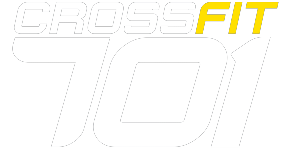Information on Popular Athletic Supplements
Being a nutrition coach and a personal trainer/coach, I often get asked about what athletic supplements are needed for people who want to get “in shape”. Navigating all the information on these supplements is overwhelming and, in most instances, unnecessary. Eating a well-balanced diet, being physically active, and getting adequate rest is first and foremost the most important. Supplements are meant to be supplementary - meaning they enhance benefits already provided by eating a well- balanced diet. They will not do the work for you; you still need to commit to a healthy lifestyle to appreciate their full benefit. I tried to not weigh this down with a bunch of science, but heads up – there is a little sprinkled in.
BCAAs:
Branched Chain Amino Acids are a group of three essential amino acids: valine, isoleucine, and leucine. This supplement is commonly taken to assist with muscle growth and enhance athletic performance. Some also find that it helps with weight loss and decreases exercise fatigue and post workout soreness.
These amino acids are considered essential because your body cannot make them, therefore you need to get them from your diet. You can consume these amino acids through food and/or through supplements. Healthy adults should aim to consume 9-35 grams of BCAAs per day. People who consume sufficient protein rich foods (this includes protein powder) most likely will not need to take this supplement, although athletes may benefit from adding additional BCAA supplements to their routine. This supplement is typically taken surrounding your workout, but some athletes do spread intake throughout the day.
Beta-Alanine:
This is a non-essential amino acid which, unlike most amino acids, is not used by your body to synthesize proteins. Bela-alanine, together with histidine, produces carnosine - and that is then stored in your muscles. Carnosine reduces accumulation of lactic acid in the muscles during exercise, leading to improved athletic performance.
This supplement can boost athletic performance, endurance, and volume specifically in high-intensity exercise; in other words, if you are leisurely lifting or watching tv/reading while working out - beta-alanine might not be that helpful.
Standard dosing ranges from 800mg - 5g daily. The research states that the timing of supplementation does not necessarily matter, but many take it pre-workout. The most common side effect is short-term paresthesia or “tingling of the skin”, which is not harmful. This sensation can usually be avoided by taking smaller doses at a time.
Creatine:
Research shows that this supplement can help athletes add mass and strength, improve training, and help with recovery between sessions. Creatine is not a steroid.
Creatine monohydrate is an organic compound that helps facilitate recycling ATP (Adenosine triphosphate) in muscle and brain tissue. ATP provides energy to drive many cellular processes such as nerve impulse transmission and muscle contraction.
How and when to take: most of the research is agreed that taking it consistently is far more important than when you take it. It can be taken with water, and one should stay hydrated throughout the day as creatine pulls water into your muscle cells.
There are two schools of thought on how to start taking creatine: One way is to have a loading phase of taking more per day (20-25 grams) for about a week to saturate your muscles then continue with maintenance supplementation of about 3-5 grams per day. The other way is to start with the maintenance dose and stay at that dose - it will just take longer to saturate the muscles (see and feel benefits).
I hope you found value in this information!
~Kala~
